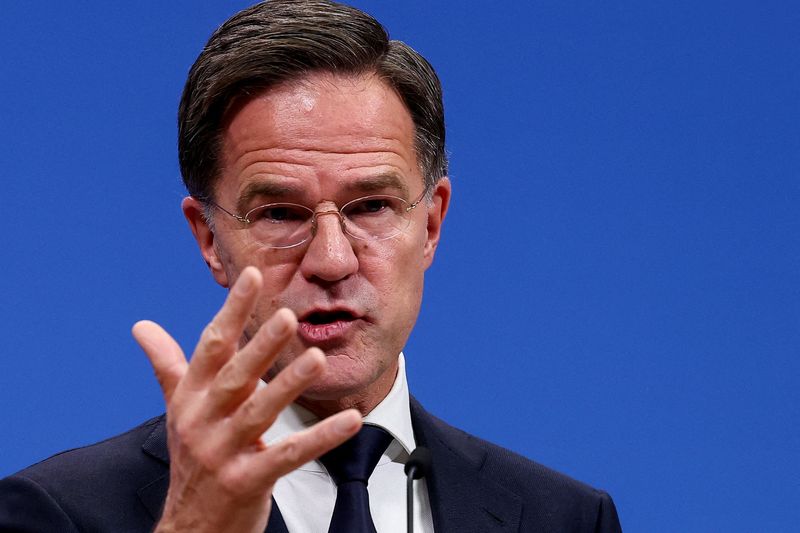NATO to boost efforts to counter Russian, Chinese sabotage acts
2024.12.03 08:45
BRUSSELS (Reuters) – NATO will step up intelligence sharing and improve the protection of critical infrastructure in the face of “hostile” acts of sabotage against allies by Russia and China, NATO chief Mark Rutte said on Tuesday.
“Over the past years, Russia and China have tried to destabilise our nations with acts of sabotage, cyberattacks, disinformation and energy blackmail to intimidate us,” Rutte told reporters.
“NATO allies will continue to stand together to face these threats through a range of measures, including greater intelligence sharing and better protection of critical infrastructure,” he said.
NATO foreign ministers gathering in Brussels this week are expected to produce a new strategy to counter hybrid threats – a term that covers propaganda, political interference, deception, sabotage of key infrastructure, and other tactics beyond the conventional military domain.
“There is a sustained, ongoing, daily hybrid campaign taking place against NATO allies,” a senior NATO official told reporters on Tuesday.
The official, who spoke on condition of anonymity, pointed to “an increasing Russian risk appetite when it comes to sabotage for physical damage and threat to people’s lives inside of our countries”.
PART OF A ‘TEST RUN’
Western security officials have said that fires in courier depots in Britain, Germany and Poland in July were part of a test run for a Russian plot to trigger explosions on cargo flights to the United States.
European countries are continuing to probe whether the cutting of two fibre-optic telecommunication cables in the Baltic Sea in November, one linking Finland and Germany and the other connecting Sweden to Lithuania, was sabotage.
Russia has dismissed multiple accusations of engaging in hybrid acts.
“It is quite absurd to continue to blame Russia for everything without any reason,” Kremlin spokesman Dmitry Peskov said last month when asked about the cutting of the Baltic cables.
China also dismissed as groundless German charges that Beijing was behind a cyberattack on a German government agency in 2021.

Western officials say they face a challenge in agreeing how to respond to suspected attacks as some NATO members are wary of escalating tensions with Russia.
NATO’s members are also divided on how much to share about their findings on suspected sabotage cases, with some preferring to make such events known to the public, while others believe this would be counterproductive.








